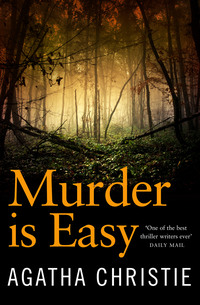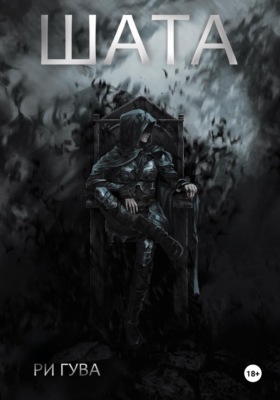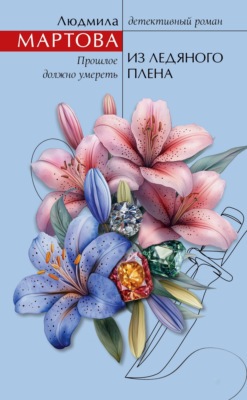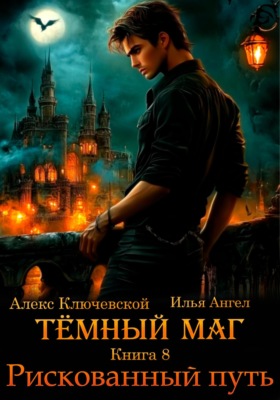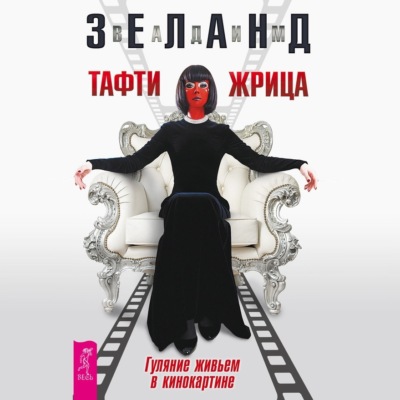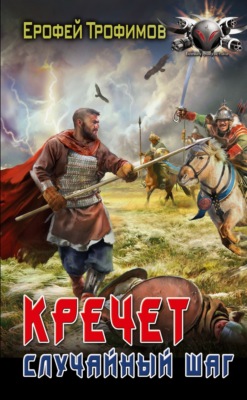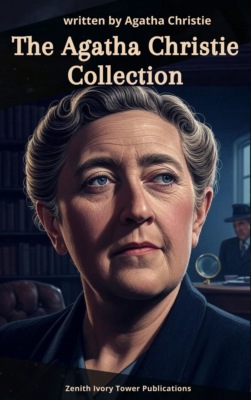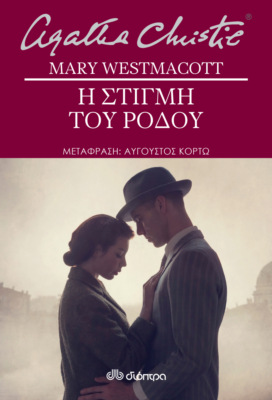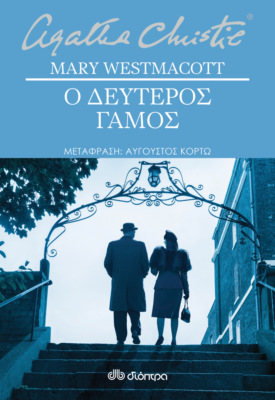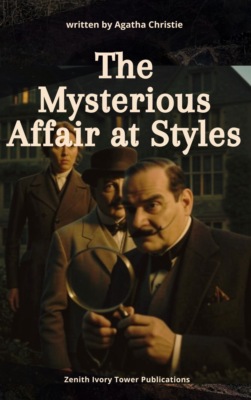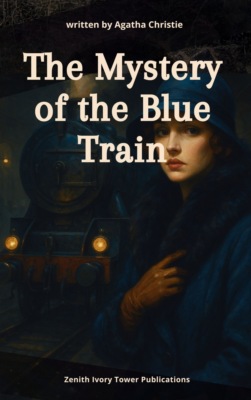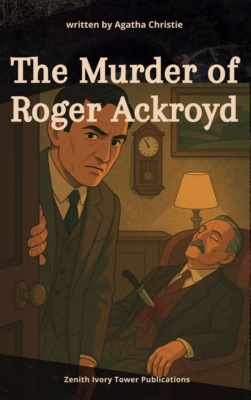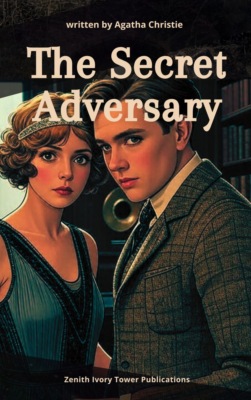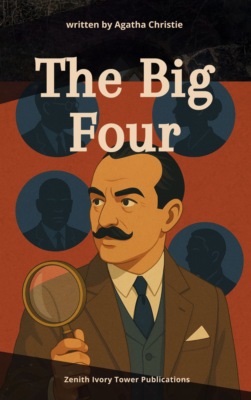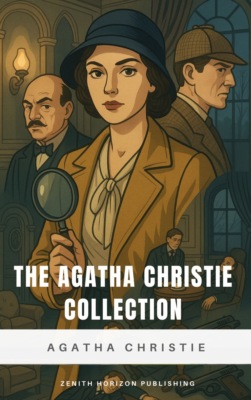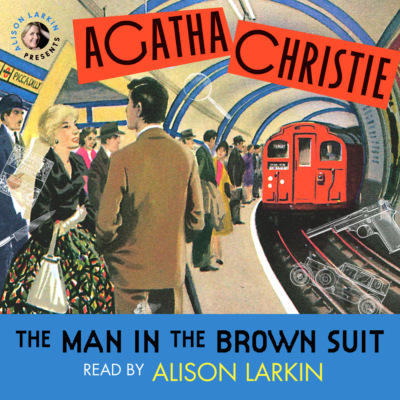Loe raamatut: «Murder Is Easy»

Copyright
Published by HarperCollinsPublishers Ltd
1 London Bridge Street
London SE1 9GF
First published in Great Britain by Collins, The Crime Club 1938
Murder is Easy™ is a trade mark of Agatha Christie Limited and Agatha Christie® and the Agatha Christie Signature are registered trade marks of Agatha Christie Limited in the UK and elsewhere.
Copyright © 1938 Agatha Christie Limited. All rights reserved.
Cover by designedbydavid.co.uk © HarperCollins/Agatha Christie Ltd 2017
Agatha Christie asserts the moral right to be identified as the author of this work.
A catalogue copy of this book is available from the British Library.
This novel is entirely a work of fiction. The names, characters and incidents portrayed in it are the work of the author’s imagination. Any resemblance to actual persons, living or dead, events or localities is entirely coincidental.
All rights reserved under International and Pan-American Copyright Conventions. By payment of the required fees, you have been granted the non-exclusive, non-transferable right to access and read the text of this e-book on screen. No part of this text may be reproduced, transmitted, down-loaded, decompiled, reverse engineered, or stored in or introduced into any information storage and retrieval system, in any form or by any means, whether electronic or mechanical, now known or hereinafter invented, without the express written permission of HarperCollins.
Source ISBN: 9780008196301
Ebook Edition © February 2017 ISBN: 9780007422531
Version: 2017-04-12
Dedication
Dedicated to Rosalind and Susan the first two critics of this book
Contents
Cover
Title Page
Copyright
Dedication
1. A Fellow-Traveller
2. Obituary Notice
3. Witch Without Broomstick
4. Luke Makes a Beginning
5. Visit to Miss Waynflete
6. Hat Paint
7. Possibilities
8. Dr Thomas
9. Mrs Pierce Talks
10. Rose Humbleby
11. Domestic Life of Major Horton
12. Passage of Arms
13. Miss Waynflete Talks
14. Meditations of Luke
15. Improper Conduct of a Chauffeur
16. The Pineapple
17. Lord Whitfield Talks
18. Conference in London
19. Broken Engagement
20. We’re in It—Together
21. ‘O Why Do You Walk Through the Fields in Gloves?’
22. Mrs Humbleby Speaks
23. New Beginning
Also by Agatha Christie
About the Publisher
CHAPTER 1
A Fellow-Traveller
England!
England after many years!
How was he going to like it?
Luke Fitzwilliam asked himself that question as he walked down the gang-plank to the dock. It was present at the back of his mind all through the wait in the Customs’ shed. It came suddenly to the fore when he was finally seated in the boat-train.
England on leave was one thing. Plenty of money to blue (to begin with anyway!), old friends to look up, meetings with other fellows home like himself—a carefree atmosphere of ‘Well, it won’t be long. Might as well enjoy myself! Soon be going back.’
But now there was no question of going back. No more of the hot stifling nights, no more blinding sun and tropical beauty of rich vegetation, no more lonely evenings reading and re-reading old copies of The Times.
Here he was, honourably retired on a pension, with some small private means of his own, a gentleman of leisure, come home to England. What was he going to do with himself?
England! England on a June day, with a grey sky and a sharp biting wind. Nothing welcoming about her on a day like this! And the people! Heavens, the people! Crowds of them, all with grey faces like the sky—anxious worried faces. The houses too, springing up everywhere like mushrooms. Nasty little houses! Revolting little houses! Chicken coops in the grandiose manner all over the countryside!
With an effort Luke Fitzwilliam averted his eyes from the landscape outside the railway carriage window and settled down to a perusal of the papers he had just bought. The Times, the Daily Clarion and Punch.
He started with the Daily Clarion. The Clarion was given over entirely to Epsom.
Luke thought: ‘A pity we didn’t get in yesterday. Haven’t seen the Derby run since I was nineteen.’
He had drawn a horse in the Club sweep and he looked now to see what the Clarion’s racing correspondent thought of its chance. He found it dismissed contemptuously in a sentence.
‘Of the others, Jujube the II, Mark’s Mile, Santony and Jerry Boy are hardly likely to qualify for a place. A likely outsider is—’
But Luke paid no attention to the likely outsider. His eye had shifted to the betting. Jujube the II was listed at a modest 40 to 1.
He glanced at his watch. A quarter to four. ‘Well,’ he thought. ‘It’s over now.’ And he wished he’d had a bet on Clarigold who was the second favourite.
Then he opened The Times and became absorbed in more serious matters.
Not for long, however, for a fierce-looking colonel in the corner opposite was so incensed at what he himself had just read that he had to pass on his indignation to his fellow-passenger. A full half-hour passed before the colonel tired of saying what he thought about ‘these damned Communist agitators, sir’.
The colonel died down at last and finally dropped off to sleep with his mouth open. Shortly afterwards the train slowed down and finally stopped. Luke looked out of the window. They were in a large empty-looking station with many platforms. He caught sight of a bookstall some way up the platform with a placard: DERBY RESULT. Luke opened the door, jumped out, and ran towards the bookstall. A moment later he was staring with a broad grin at a few smudged lines in the stop press.
Derby Result
JUJUBE THE II
MAZEPPA
CLARIGOLD
Luke grinned broadly. A hundred pounds to blue! Good old Jujube the II, so scornfully dismissed by all the tipsters.
He folded the paper, still grinning to himself, and turned back—to face emptiness. In the excitement of Jujube the II’s victory, his train had slipped out of the station unnoticed by him.
‘When the devil did that train go out?’ he demanded of a gloomy-looking porter.
The latter replied:
‘What train? There hasn’t been no train since the 3.14.’
‘There was a train here just now. I got out of it. The boat express.’
The porter replied austerely:
‘The boat express don’t stop anywhere till London.’
‘But it did,’ Luke assured him. ‘I got out of it.’
‘No stop anywhere till London,’ repeated the porter immovably.
‘It stopped at this very platform and I got out of it, I tell you.’
Faced by facts, the porter changed his ground.
‘You didn’t ought to have done,’ he said reproachfully. ‘It don’t stop here.’
‘But it did.’
‘That ’twas signal, that was. Signal against it. It didn’t what you’d call “stop”.’
‘I’m not so good at these fine distinctions as you are,’ said Luke. ‘The point is, what do I do next?’
The porter, a man of slow ideas, repeated reproachfully: ‘You didn’t ought to have got out.’
‘We’ll admit that,’ said Luke. ‘The wrong is done, past all recall—weep we never so bitterly we can never bring back the dead past—Quoth the raven “Nevermore”—The moving finger writes; and having writ moves on, etc., etc., and so on and so forth. What I’m trying to get at is, what do you, a man experienced in the service of the railway company, advise me to do now?’
‘You’re asking what you’d better do?’
‘That,’ said Luke, ‘is the idea. There are, I presume, trains that stop, really officially stop, here?’
‘Reckon,’ said the porter. ‘You’d best go on by the 4.25.’
‘If the 4.25 goes to London,’ said Luke, ‘the 4.25 is the train for me.’
Reassured on that point, Luke strolled up and down the platform. A large board informed him that he was at Fenny Clayton Junction for Wychwood-under-Ashe, and presently a train consisting of one carriage pushed backwards by an antiquated little engine came slowly puffing in and deposited itself in a modest bay. Six or seven people alighted, and crossing over a bridge, came to join Luke on his platform. The gloomy porter suddenly awoke to life and began pushing about a large truck of crates and baskets, another porter joined him and began to rattle milk cans. Fenny Clayton awoke to life.
At last, with immense importance the London train came in. The third-class carriages were crowded, and of firsts there were only three and each one contained a traveller or travellers. Luke scrutinized each compartment. The first, a smoker, contained a gentleman of military aspect smoking a cigar. Luke felt he had had enough of Anglo-Indian colonels today. He passed on to the next one, which contained a tired-looking genteel young woman, possibly a nursery governess, and an active-looking small boy of about three. Luke passed on quickly. The next door was open and the carriage contained one passenger, an elderly lady. She reminded Luke slightly of one of his aunts, his Aunt Mildred, who had courageously allowed him to keep a grass snake when he was ten years old. Aunt Mildred had been decidedly a good aunt as aunts go. Luke entered the carriage and sat down.
After some five minutes of intense activity on the part of milk vans, luggage trucks and other excitements, the train moved slowly out of the station. Luke unfolded his paper and turned to such items of news as might interest a man who had already read his morning paper.
He did not hope to read it for long. Being a man of many aunts, he was fairly certain that the nice old lady in the corner did not propose to travel in silence to London.
He was right—a window that needed adjusting, dropped umbrella—and the way the old lady was telling him what a good train this was.
‘Only an hour and ten minutes. That’s very good, you know, very good indeed. Much better than the morning one. That takes an hour and forty minutes.’
She went on:
‘Of course, nearly everyone goes by the morning one. I mean, when it is the cheap day it’s silly to go up in the afternoon. I meant to go up this morning, but Wonky Pooh was missing—that’s my cat, a Persian, such a beauty only he’s had a painful ear lately—and of course I couldn’t leave home till he was found!’
Luke murmured:
‘Of course not,’ and let his eyes drop ostentatiously to his paper. But it was of no avail. The flood went on.
‘So I just made the best of a bad job and took the afternoon train instead, and of course it’s a blessing in one way because it’s not so crowded—not that that matters when one is travelling first class. Of course, I don’t usually do that. I mean, I should consider it an extravagance, what with taxes and one’s dividends being less and servants’ wages so much more and everything—but really I was so upset because you see, I’m going up on very important business, and I wanted to think out exactly what I was going to say—just quietly, you know—’ Luke repressed a smile. ‘And when there are people you know travelling up too—well, one can’t be unfriendly—so I thought just for once, the expense was quite permissible—though I do think nowadays there is so much waste—and nobody saves or thinks of the future. One is sorry the seconds were ever abolished—it did make just that little difference.
‘Of course,’ she went on quickly, with a swift glance at Luke’s bronzed face, ‘I know soldiers on leave have to travel first class. I mean, being officers, it’s expected of them—’
Luke sustained the inquisitive glance of a pair of bright twinkling eyes. He capitulated at once. It would come to it, he knew, in the end.
‘I’m not a soldier,’ he said.
‘Oh, I’m sorry. I didn’t mean—I just thought—you were so brown—perhaps home from the East on leave.’
‘I’m home from the East,’ said Luke. ‘But not on leave.’ He stalled off further researches with a bald statement. ‘I’m a policeman.’
‘In the police? Now really, that’s very interesting. A dear friend of mine—her boy has just joined the Palestine police.’
‘Mayang Straits,’ said Luke, taking another short cut.
‘Oh, dear—very interesting. Really, it’s quite a coincidence—I mean, that you should be travelling in this carriage. Because, you see, this business I’m going up to town about—well, actually it is to Scotland Yard I’m going.’
‘Really?’ said Luke.
He thought to himself, ‘Will she run down soon like a clock or will this go on all the way to London?’ But he did not really mind very much, because he had been very fond of his Aunt Mildred, and he remembered how she had once stumped up a fiver in the nick of time. Besides, there was something very cosy and English about old ladies like this old lady and his Aunt Mildred. There was nothing at all like them in the Mayang Straits. They could be classed with plum pudding on Christmas Day and village cricket and open fireplaces with wood fires. The sort of things you appreciated a good deal when you hadn’t got them and were on the other side of the world. (They were also the sort of thing you got very bored with when you had a good deal of them, but as has been already told, Luke had only landed in England three or four hours ago.)
The old lady was continuing happily:
‘Yes, I meant to go up this morning—and then, as I told you, I was so worried about Wonky Pooh. But you don’t think it will be too late, do you? I mean, there aren’t any special office hours at Scotland Yard.’
‘I don’t think they close down at four or anything like that,’ said Luke.
‘No, of course, they couldn’t, could they? I mean, somebody might want to report a serious crime at any minute, mightn’t they?’
‘Exactly,’ said Luke.
For a moment the old lady relapsed into silence. She looked worried.
‘I always think it’s better to go right to the fountain-head,’ she said at last. ‘John Reed is quite a nice fellow—that’s our constable in Wychwood—a very civil-spoken, pleasant man—but I don’t feel, you know—that he would be quite the person to deal with anything serious. He’s quite used to dealing with people who’ve drunk too much, or with exceeding the speed limit, or lighting-up time—or people who haven’t taken out a dog licence—and perhaps with burglary even. But I don’t think—I’m quite sure—he isn’t the person to deal with murder!’
Luke’s eyebrows rose.
‘Murder?’
The old lady nodded vigorously.
‘Yes, murder. You’re surprised, I can see. I was myself at first … I really couldn’t believe it. I thought I must be imagining things.’
‘Are you quite sure you weren’t?’ Luke asked gently.
‘Oh, no.’ She shook her head positively. ‘I might have been the first time, but not the second, or the third or the fourth. After that one knows.’
Luke said:
‘Do you mean there have been—er—several murders?’
The quiet gentle voice replied:
‘A good many, I’m afraid.’
She went on:
‘That’s why I thought it would be best to go straight to Scotland Yard and tell them about it. Don’t you think that’s the best thing to do?’
Luke looked at her thoughtfully, then he said:
‘Why, yes—I think you’re quite right.’
He thought to himself:
‘They’ll know how to deal with her. Probably get half a dozen old ladies a week coming in burbling about the amount of murders committed in their nice quiet country villages! There may be a special department for dealing with the old dears.’
And he saw in imagination a fatherly superintendent, or a good-looking young inspector, tactfully murmuring:
‘Thank you, ma’am, very grateful to you, I’m sure. Now just go back and leave it all in our hands and don’t worry any more about it.’
He smiled a little to himself at the picture. He thought:
‘I wonder why they get these fancies? Deadly dull lives, I suppose—an unacknowledged craving for drama. Some old ladies, so I’ve heard, fancy everyone is poisoning their food.’
He was roused from these meditations by the thin, gentle voice continuing:
‘You know, I remember reading once—I think it was the Abercrombie case—of course he’d poisoned quite a lot of people before any suspicion was aroused—what was I saying? Oh, yes, somebody said that there was a look—a special look that he gave anyone—and then very shortly afterwards that person would be taken ill. I didn’t really believe that when I read about it—but it’s true!’
‘What’s true?’
‘The look on a person’s face …’
Luke stared at her. She was trembling a little, and her nice pink cheeks had lost some of their colour.
‘I saw it first with Amy Gibbs—and she died. And then it was Carter. And Tommy Pierce. But now—yesterday—it was Dr Humbleby—and he’s such a good man—a really good man. Carter, of course, drank, and Tommy Pierce was a dreadfully cheeky impertinent little boy, and bullied the tiny boys, twisting their arms and pinching them. I didn’t feel quite so badly about them, but Dr Humbleby’s different. He must be saved. And the terrible thing is that if I went to him and told him about it he wouldn’t believe me! He’d only laugh! And John Reed wouldn’t believe me either. But at Scotland Yard it will be different. Because, naturally, they’re used to crime there!’
She glanced out of the window.
‘Oh, dear, we shall be in in a minute.’ She fussed a little, opening and shutting her bag, collecting her umbrella.
‘Thank you—thank you so much.’ This to Luke as he picked the umbrella up for the second time. ‘It’s been such a relief talking to you—most kind of you, I’m sure—so glad you think I’m doing the right thing.’
Luke said kindly:
‘I’m sure they’ll give you good advice at Scotland Yard.’
‘I really am most grateful.’ She fumbled in her bag. ‘My card—oh, dear, I only have one—I must keep that—for Scotland Yard—’
‘Of course, of course—’
‘But my name is Pinkerton.’
‘Very suitable name, too, Miss Pinkerton,’ said Luke, smiling, adding hastily as she looked a little bewildered, ‘My name is Luke Fitzwilliam.’
As the train drew in to the platform he added:
‘Can I get you a taxi?’
‘Oh, no, thank you.’ Miss Pinkerton seemed quite shocked at the idea. ‘I shall take the tube. That will take me to Trafalgar Square, and I shall walk down Whitehall.’
‘Well, good luck,’ said Luke.
Miss Pinkerton shook him warmly by the hand.
‘So kind,’ she murmured again. ‘You know, just at first I thought you didn’t believe me.’
Luke had the grace to blush.
‘Well,’ he said. ‘So many murders! Rather hard to do a lot of murders and get away with it, eh?’
Miss Pinkerton shook her head.
She said earnestly:
‘No, no, my dear boy, that’s where you’re wrong. It’s very easy to kill—so long as no one suspects you. And you see, the person in question is just the last person anyone would suspect!’
‘Well, anyway, good luck,’ said Luke.
Miss Pinkerton was swallowed up in the crowd. He himself went off in search of his luggage, thinking as he did so:
‘Just a little bit batty? No, I don’t think so. A vivid imagination, that’s all. Hope they let her down lightly. Rather an old dear.’
CHAPTER 2
Obituary Notice
Jimmy Lorrimer was one of Luke’s oldest friends. As a matter of course, Luke stayed with Jimmy as soon as he got to London. It was with Jimmy that he sallied forth on the evening of his arrival in search of amusement. It was Jimmy’s coffee that he drank with an aching head the morning after, and it was Jimmy’s voice that went unanswered while he read twice over a small insignificant paragraph in the morning paper.
‘Sorry, Jimmy,’ he said, coming to himself with a start.
‘What were you absorbed in—the political situation?’
Luke grinned.
‘No fear. No, it’s rather queer—old pussy I travelled up with in the train yesterday got run over.’
‘Probably trusted to a Belisha Beacon,’ said Jimmy. ‘How do you know it’s her?’
‘Of course, it mayn’t be. But it’s the same name—Pinkerton—she was knocked down and killed by a car as she was crossing Whitehall. The car didn’t stop.’
‘Nasty business,’ said Jimmy.
‘Yes, poor old bean. I’m sorry. She reminded me of my Aunt Mildred.’
‘Whoever was driving that car will be for it. Bring it in manslaughter as likely as not. I tell you, I’m scared stiff of driving a car nowadays.’
‘What have you got at present in the way of a car?’
‘Ford V 8. I tell you, my boy—’
The conversation became severely mechanical.
Jimmy broke it off to ask:
‘What the devil are you humming?’
Luke was humming to himself:
‘Fiddle de dee, fiddle de dee, the fly has married the bumble bee.’
He apologized.
‘Nursery rhyme remembered from my childhood. Can’t think what put it into my head.’
It was over a week later that Luke, carelessly scanning the front page of The Times, gave a sudden startled exclamation.
‘Well, I’m damned!’
Jimmy Lorrimer looked up.
‘What’s the matter?’
Luke did not answer. He was staring at a name in the printed column.
Jimmy repeated his question.
Luke raised his head and looked at his friend. His expression was so peculiar that Jimmy was quite taken aback.
‘What’s up, Luke? You look as though you’d seen a ghost.’
For a minute or two the other did not reply. He dropped the paper, strode to the window and back again. Jimmy watched him with increasing surprise.
Luke dropped into a chair and leaned forward.
‘Jimmy, old son, do you remember my mentioning an old lady I travelled up to town with—the day I arrived in England?’
‘The one you said reminded you of your Aunt Mildred? And then she got run over by a car?’
‘That’s the one. Listen, Jimmy. The old girl came out with a long rigmarole of how she was going up to Scotland Yard to tell them about a lot of murders. There was a murderer loose in her village—that’s what it amounted to, and he’s been doing some pretty rapid execution.’
‘You didn’t tell me she was batty,’ said Jimmy.
‘I didn’t think she was.’
‘Oh, come now, old boy, wholesale murder—’
Luke said impatiently:
‘I didn’t think she was off her head. I thought she was just letting her imagination run away with her like old ladies sometimes do.’
‘Well, yes, I suppose that might have been it. But she was probably a bit touched as well, I should think.’
‘Never mind what you think, Jimmy. At the moment, I’m telling you, see?’
‘Oh, quite—quite—get on with it.’
‘She was quite circumstantial, mentioned one or two victims by name and then explained that what had really rattled her was the fact that she knew who the next victim was going to be.’
‘Yes?’ said Jimmy encouragingly.
‘Sometimes a name sticks in your head for some silly reason or other. This name stuck in mine because I linked it up with a silly nursery rhyme they used to sing to me when I was a kid. Fiddle de dee, fiddle de dee, the fly has married the bumble bee.’
‘Very intellectual, I’m sure, but what’s the point?’
‘The point, my good ass, is that the man’s name was Humbleby—Dr Humbleby. My old lady said Dr Humbleby would be the next, and she was distressed because he was “such a good man”. The name stuck in my head because of the aforementioned rhyme.’
‘Well?’ said Jimmy.
‘Well, look at this.’
Luke passed over the paper, his finger pressed against an entry in the column of deaths.
HUMBLEBY.—On June 13, suddenly, at his residence, Sandgate, Wychwood-under-Ashe, John Edward Humbleby, md, beloved husband of Jessie Rose Humbleby. Funeral Friday. No flowers, by request.
‘You see, Jimmy? That’s the name and the place and he’s a doctor. What do you make of it?’
Jimmy took a moment or two to answer. His voice was serious when he said at last rather uncertainly:
‘I suppose it’s just a damned odd coincidence.’
‘Is it, Jimmy? Is it? Is that all it is?’
Luke began to walk up and down again.
‘What else could it be?’ asked Jimmy.
Luke wheeled round suddenly.
‘Suppose that every word that dear bleating old sheep said was true! Suppose that that fantastic story was just the plain literal truth!’
‘Oh, come now, old boy! That would be a bit thick! Things like that don’t happen.’
‘What about the Abercrombie case? Wasn’t he supposed to have done away with a goodish few?’
‘More than ever came out,’ said Jimmy. ‘A pal of mine had a cousin who was the local coroner. I heard a bit through him. They got Abercrombie for feeding the local vet with arsenic, then they dug up his wife and she was full of it, and it’s pretty certain his brother-in-law went the same way—and that wasn’t all, by a long chalk. This pal of mine told me the unofficial view was that Abercrombie had done away with at least fifteen people in his time. Fifteen!’
‘Exactly. So these things do happen!’
‘Yes, but they don’t happen often.’
‘How do you know? They may happen a good deal oftener than you suppose.’
‘There speaks the police wallah! Can’t you forget you’re a policeman now that you’ve retired into private life?’
‘Once a policeman, always a policeman, I suppose,’ said Luke. ‘Now look here, Jimmy, supposing that before Abercrombie had got so foolhardy as fairly to push his murders under the nose of the police, some dear loquacious old spinster had just simply guessed what he was up to and had trotted off to tell someone in authority all about it. Do you suppose they’d have listened to her?’
Jimmy grinned.
‘No fear!’
‘Exactly. They’d have said she’d got bats in the belfry. Just as you said! Or they’d have said, “Too much imagination. Not enough to do.” As I said! And both of us, Jimmy, would have been wrong.’
Lorrimer took a moment or two to consider, then he said:
‘What’s the position exactly—as it appears to you?’
Luke said slowly:
‘The case stands like this. I was told a story—an improbable, but not an impossible story. One piece of evidence, the death of Dr Humbleby, supports that story. And there’s one other significant fact. Miss Pinkerton was going to Scotland Yard with this improbable story of hers. But she didn’t get there. She was run over and killed by a car that didn’t stop.’
Jimmy objected.
‘You don’t know that she didn’t get there. She might have been killed after her visit, not before.’
‘She might have been, yes—but I don’t think she was.’
‘That’s pure supposition. It boils down to this—you believe in this—this melodrama.’
Luke shook his head sharply.
‘No, I don’t say that. All I say is, there’s a case for investigation.’
‘In other words, you are going to Scotland Yard?’
‘No, it hasn’t come to that yet—not nearly. As you say, this man Humbleby’s death may be merely a coincidence.’
‘Then what, may I ask, is the idea?’
‘The idea is to go down to this place and look into the matter.’
‘So that’s the idea, is it?’
‘Don’t you agree that that is the only sensible way to set about it?’
Jimmy stared at him, then he said:
‘Are you serious about this business, Luke?’
‘Absolutely.’
‘Suppose the whole thing’s a mare’s nest?’
‘That would be the best thing that could happen.’
‘Yes, of course …’ Jimmy frowned. ‘But you don’t think it is, do you?’
‘My dear fellow, I’m keeping an open mind.’
Jimmy was silent for a minute or two. Then he said:
‘Got any plan? I mean, you’ll have to have some reason for suddenly arriving in this place.’
‘Yes, I suppose I shall.’
‘No “suppose” about it. Do you realize what a small English country town is like? Anyone new sticks out a mile!’
‘I shall have to adopt a disguise,’ said Luke with a sudden grin. ‘What do you suggest? Artist? Hardly—I can’t draw, let alone paint.’
‘You could be a modern artist,’ suggested Jimmy. ‘Then that wouldn’t matter.’
But Luke was intent on the matter in hand.
‘An author? Do authors go to strange country inns to write? They might, I suppose. A fisherman, perhaps—but I’ll have to find out if there’s a handy river. An invalid ordered country air? I don’t look the part, and anyway everyone goes to a nursing home nowadays. I might be looking for a house in the neighbourhood. But that’s not very good. Hang it all, Jimmy, there must be some plausible reason for a hearty stranger to descend upon an English village?’
Jimmy said:
‘Wait a sec—give me that paper again.’
Taking it, he gave it a cursory glance and announced triumphantly:
‘I thought so! Luke, old boy—to put it in a nutshell—I’ll fix you OK. Everything’s as easy as winking!’
Luke wheeled round.
‘What?’
Jimmy was continuing with modest pride:
‘I thought something struck a chord! Wychwood-under-Ashe. Of course! The very place!’
‘Have you, by any chance, a pal who knows the coroner there?’
‘Not this time. Better than that, my boy. Nature, as you know, has endowed me plentifully with aunts and cousins—my father having been one of a family of thirteen. Now listen to this: I have a cousin in Wychwood-under-Ashe.’
‘Jimmy, you’re a blinking marvel.’
‘It is pretty good, isn’t it?’ said Jimmy modestly.
‘Tell me about him.’
‘It’s a her. Her name’s Bridget Conway. For the last two years she’s been secretary to Lord Whitfield.’
‘The man who owns those nasty little weekly papers?’
Tasuta katkend on lõppenud.

